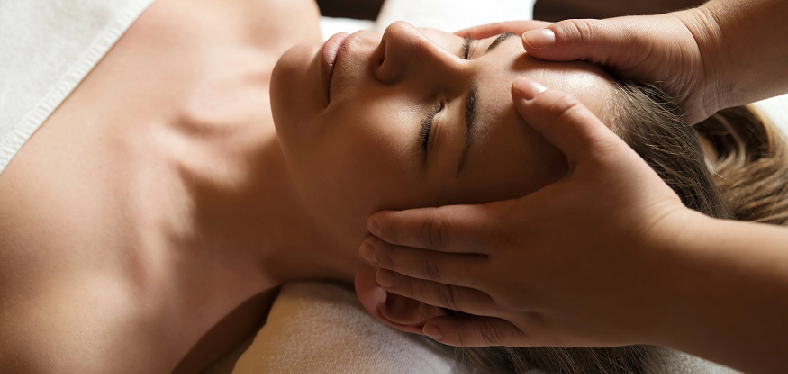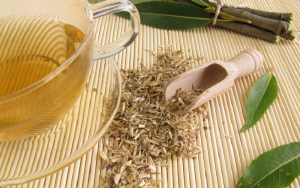
In today’s fast-paced world, stress and unhealthy lifestyles often manifest themselves as skin problems, aging us prematurely, and marring our natural radiance. However, there lies a potent remedy in the ancient practice of meditation. There is an intriguing connection between regular meditation and improved skin health. So here we take a look at the harmonious interplay between inner peace and outer beauty: the entwining paths of meditation and skin health.
Contents
Introduction to Meditation and Skin Health
Before we embark on this journey, it’s crucial to establish our understanding of the key concepts: meditation and skin health.
Meditation, a practice with ancient roots, is essentially a method to train the mind, similar to how fitness is a way to train the body. Different types of meditation involve different techniques, but all aim to cultivate a state of relaxed awareness and focused attention.
On the other hand, skin health refers to the condition of our skin, the body’s largest organ. It’s not just about having a blemish-free complexion; rather, true skin health indicates that the skin is performing its functions efficiently, including protection from environmental stressors, regulation of body temperature, and sensation of touch, among others.
Beauty is often perceived from a two-dimensional perspective: physical attractiveness. However, true beauty transcends the outer layer, reflecting an individual’s inner state of mind and spirit.
We believe in a holistic approach to beauty that blends the peace of the mind with the health of the skin. Meditation, a practice that nurtures tranquility and mindfulness, can positively impact your skin health, acting as a bridge between inner peace and outer beauty.
The Fundamentals of Meditation
Before jumping into the connection between meditation and skin health, it’s essential to understand the fundamentals of meditation. By building a solid foundation of knowledge about what meditation is, the different types that exist, and the benefits of regular practice, we’ll be better equipped to appreciate how this ancient discipline can influence our physical wellbeing, including the health of our skin.
Understanding Meditation: What It Is and How It Works
At its core, meditation is a mental exercise designed to promote relaxation, build internal energy, and develop compassion, love, patience, generosity, and forgiveness. It’s a state of thoughtless awareness where the excessive stress-producing activity of the mind is neutralized without reducing alertness and effectiveness.
Meditation works by engaging the mind with a particular object, thought, or activity to train attention and awareness, thereby achieving a mentally clear and emotionally calm and stable state. It shifts your brain waves from a Beta state, associated with normal waking conditions, to a slower Alpha state, linked to relaxation, and even slower Theta state, tied to deep meditation and sleep [1].
Types of Meditation Practices
There is a rich diversity of meditation practices, reflecting the range of cultures and traditions in which they have developed. Here are a few common ones:
- Mindfulness Meditation: Originating from Buddhist teachings, it involves paying attention to thoughts as they pass through your mind. The objective isn’t to get involved with the thoughts or to judge them, but to be aware of each as it arises.
- Transcendental Meditation: A technique where you silently repeat a personally assigned mantra, such as a word, sound, or phrase, in a specific way to settle your mind while maintaining full alertness.
- Loving-Kindness Meditation: Also known as Metta meditation, the goal here is to cultivate an attitude of love and kindness towards everything, including one’s enemies and sources of stress.
- Body Scan or Progressive Relaxation: A practice to scan your body for areas of tension, with the goal to notice tension and allow it to release.
- Yoga, Tai Chi, and Qigong: These forms of moving meditation combine fluid movements with deep breathing and mental focus.
Benefits of Regular Meditation
Over time, meditation can yield a wide range of benefits, from the psychological to the physiological. Regular practice can reduce stress and anxiety, improve concentration and memory, increase self-awareness and self-esteem, and promote emotional health.
Physiologically, meditation can decrease blood pressure, alleviate pain, improve sleep, and, as we will explore in depth in the following sections, positively affect skin health. These benefits make meditation a powerful tool for enhancing overall wellbeing and a practice worth integrating into our daily lives.

The Science Behind Skin Health
Now that we’ve established a solid understanding of meditation, it’s time to delve into the fascinating world of skin health. Your skin, the body’s largest organ, plays a vital role in your overall health and wellbeing, beyond just your appearance. By understanding the fundamentals of skin anatomy, common skin issues, and the role a healthy lifestyle plays in skin health, we can begin to see how meditation fits into the picture.
Basics of Skin Anatomy and Physiology
The skin is a complex organ comprised of three main layers: the epidermis, dermis, and hypodermis. The outermost layer, the epidermis, serves as a protective barrier against environmental factors and pathogens. The dermis, the middle layer, contains tough connective tissue, hair follicles, and sweat glands. The deepest layer, the hypodermis, is made of fat and connective tissue [2].
Your skin carries out several key functions including protection, sensation, heat regulation, immune surveillance, and endocrine function. It also has an impressive ability to repair and regenerate itself. A clear understanding of these attributes provides a foundation to appreciate the impact of lifestyle factors, including meditation, on skin health.
Common Skin Problems and Their Causes
Many of us deal with a variety of skin issues, from acne to premature aging, rosacea to psoriasis. These conditions can be influenced by a number of factors, including genetics, environmental exposures (like sun and pollution), diet, and notably, stress.
Stress causes your body to produce hormones like cortisol, which makes your skin oilier and more prone to acne and other skin problems. Moreover, stress can worsen existing skin conditions and impede the skin’s ability to heal.
Role of a Healthy Lifestyle in Skin Health
Maintaining skin health goes beyond using topical products; it also requires a comprehensive, healthy lifestyle approach. A balanced diet rich in antioxidants, regular exercise, adequate hydration, and sufficient sleep all contribute to healthy skin.
A crucial, yet often overlooked, component of a healthy lifestyle is stress management. Chronic stress not only affects your overall health but can also lead to various skin problems, as mentioned earlier. Hence, incorporating stress management techniques like meditation can significantly benefit your skin health [3].

Exploring the Connection: Meditation and Skin Health
Having uncovered the fundamental aspects of both meditation and skin health, we are now equipped to delve into the intriguing nexus between the two. This interplay, where the mind influences the health and appearance of the skin, provides a compelling case for a holistic approach towards skincare that encompasses mental and emotional wellbeing.
The Role of Stress in Skin Health
The effects of stress on skin health are profound and wide-ranging. Chronic stress triggers the body’s fight-or-flight response, leading to the production of stress hormones like cortisol. Cortisol, in turn, stimulates oil production in the skin, increasing the risk of acne breakouts. Additionally, stress can exacerbate existing skin conditions like psoriasis, eczema, and rosacea, and can interfere with the skin’s ability to regenerate and heal.
How Meditation Mitigates Stress Effects
Meditation serves as a potent stress-reliever. It helps reduce the body’s stress response, thereby lowering the production of cortisol. When the levels of cortisol decrease, skin oiliness is controlled, reducing acne breakouts. Moreover, a calmer mind improves the body’s healing processes, promoting quicker repair of damaged skin and maintaining the skin’s overall health and vibrancy.
But the benefits of meditation don’t stop at stress reduction. This mind-calming practice can influence our skin health through other mechanisms, too, which brings us to our next section.
Recent Studies Linking Meditation to Improved Skin Health
Recent scientific research provides compelling evidence of the link between meditation and skin health.
For instance, a study published in the journal “Brain, Behavior, and Immunity” showed that participants who underwent mindfulness meditation training experienced significant improvements in psoriasis. Another study indicated that mindfulness could help alleviate symptoms of eczema [4].
Research has demonstrated that meditation can slow down cellular aging, including skin cells, by promoting telomere lengthening and reducing telomere shortening. Telomeres are the protective caps at the end of our chromosomes, and their length is an indicator of biological aging, including skin aging.

In-Depth: The Physiological Mechanisms Linking Meditation to Skin Health
With an understanding of how meditation affects skin health at a surface level, let’s delve into the physiological mechanisms that create this beneficial connection. We’ll uncover how meditation impacts hormone levels, reduces inflammation, and improves sleep, all of which can significantly affect skin health and contribute to our outer beauty.
Impact of Meditation on Hormone Levels
One of the primary physiological mechanisms through which meditation affects skin health is by altering hormone levels. Meditation helps reduce the levels of stress hormones, particularly cortisol. High cortisol levels can trigger skin inflammation and increase oil production, leading to problems like acne and other skin issues. By reducing cortisol levels, meditation can help manage these conditions.
Additionally, meditation can increase the levels of endorphins, often termed as the body’s ‘feel-good’ hormones. Endorphins promote a sense of wellbeing and have also been found to improve immune response, thereby helping the skin to heal and regenerate [5].
Meditation and Inflammation Reduction
Chronic inflammation is linked to numerous skin conditions, including psoriasis, eczema, and premature aging. Stress, among other factors, can cause inflammation in the body.
Meditation, however, has been shown in numerous studies to reduce inflammation by decreasing the production of pro-inflammatory genes. Thus, regular practice of meditation can help manage inflammatory skin conditions and contribute to healthier, youthful-looking skin.
Meditation and Improved Sleep: Implications for Skin Health
Sleep is a vital period for the skin as it’s the time when the body repairs and regenerates skin cells. However, stress and anxiety can interfere with the quality and quantity of sleep, thereby negatively impacting skin health.
Meditation improves sleep by helping the mind relax and manage stress. A study published in JAMA Internal Medicine found that mindfulness meditation helped improve sleep quality in adults who had trouble sleeping. With improved sleep, your skin gets ample time to heal and rejuvenate, leading to a fresh, healthy complexion [6].
Practical Guide to Incorporating Meditation for Skin Health
Having unraveled the scientific mechanisms underlying the connection between meditation and skin health, let’s turn our attention to practical application. By incorporating meditation into your daily routine, you can harness these benefits to promote both your skin health and overall wellbeing.
Starting Your Meditation Practice
Begin your meditation journey with small, achievable steps. Here are some simple ways to start:
- Find a Quiet Space: Look for a peaceful spot in your home where you won’t be disturbed.
- Choose a Comfortable Position: Sit comfortably, either on a cushion on the floor or in a chair, with your spine upright.
- Decide on a Time Frame: Start with just a few minutes each day, gradually increasing as you get comfortable with the practice.
- Focus Your Attention: Concentrate on your breath, a mantra, or visualize a peaceful image.
Remember, consistency is key. It’s better to meditate for a few minutes every day than for a longer period just once a week.
Meditation Techniques for Stress Reduction
Stress reduction is a key way that meditation supports skin health. Here are two techniques specifically designed for this purpose:
- Mindfulness Meditation: This involves focusing on your breath while observing thoughts, feelings, and sensations without judgment.
- Loving-Kindness Meditation: In this practice, you silently repeat a series of mantras (like “May I be happy. May I be well.”), first directing the sentiments towards yourself and then towards others, even those who have caused you stress or pain.
Incorporating Meditation into Your Skincare Routine
An effective way to ensure regular meditation is to incorporate it into your existing routines. For instance, you might meditate for a few minutes before applying your nightly skincare products. Not only does this create a cue for meditation (i.e., skincare routine means it’s time to meditate), but it also sets a calm and mindful tone for your skincare ritual.
Remember, the goal isn’t perfection, but rather a continual return to awareness and presence. Just as consistent skincare leads to better skin health, so too does consistent meditation lead to a calmer mind and, as we’ve explored, healthier skin.
References
[1] Does Meditation Actually Help Your Skin Health and Breakouts?
[2] What a Month of Meditation Did for My Skin
[3] The Beauty Benefits of Meditation
[4] Stress and Skin: An Overview of Mind Body Therapies as a Treatment Strategy in Dermatology
[5] How Meditation Can Super-Charge Your Skin-Care Routine
[6] How Meditation Benefits Your Skin







